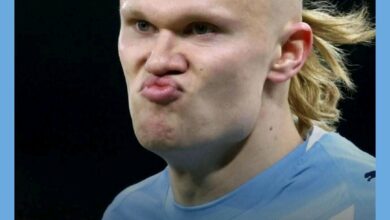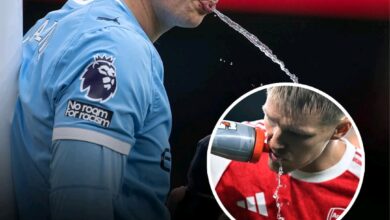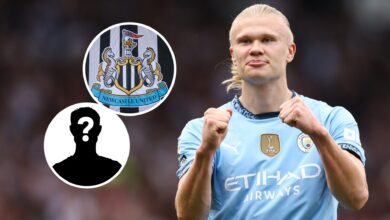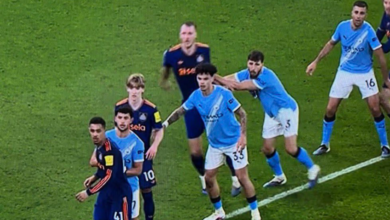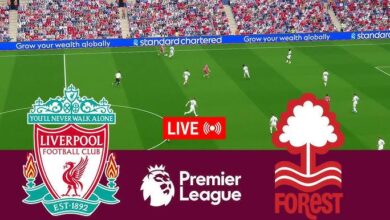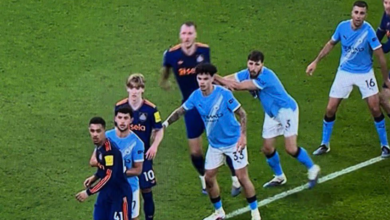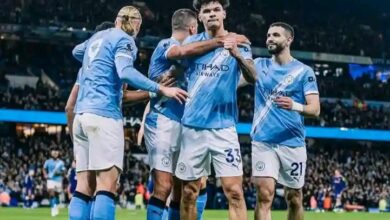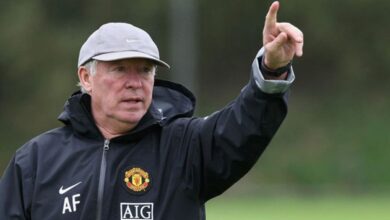Shock Premier League club ‘hold discussions’ over signing Kevin De Bruyne as midfielder’s decision ‘alerts’ chiefs
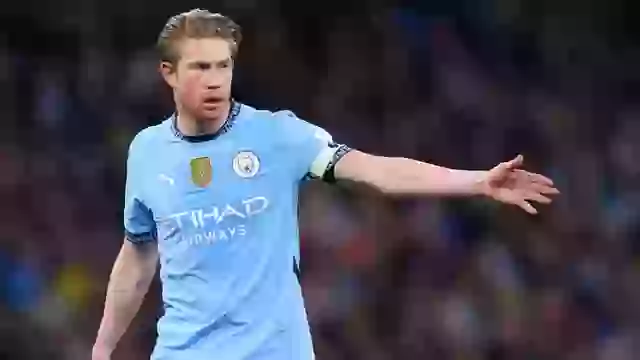
As the 2024-25 season draws to a close, Manchester City finds itself at a pivotal moment in its modern history. Kevin De Bruyne, widely regarded as one of the greatest midfielders to ever grace the Premier League, is set to depart the club after nearly a decade of unparalleled success. The Belgian maestro, who arrived at the Etihad in 2015, has been the creative heartbeat of a City side that has dominated English football, collecting six Premier League titles and finally securing the coveted Champions League trophy in the 2022-23 season.
De Bruyne’s announcement in early April that he would be leaving City sent shockwaves through the football world. For supporters who have witnessed his visionary passing, technical brilliance, and match-winning moments, the news marked the beginning of the end of a glorious chapter in the club’s history. His departure signals not just the loss of an exceptional player but potentially a shift in the club’s recruitment strategy and on-field philosophy.
This article delves into the circumstances surrounding De Bruyne’s departure, explores his legacy at Manchester City, examines his potential destinations, and considers what his exit might mean for the future direction of the club. With City also reportedly preparing to part ways with Bernardo Silva, there appears to be a significant transition underway at the Premier League champions.
The manner of De Bruyne’s departure has raised eyebrows across the football community. Despite his continued excellence on the pitch when fit, the 33-year-old midfielder revealed that he was “a little bit shocked” at not receiving any contract extension offer from Manchester City throughout the season. Speaking after City’s 2-0 victory over Everton in April 2025, De Bruyne expressed his surprise at the club’s decision:
“I have not had any offer the whole year, they just took a decision. Obviously, I was a bit surprised but I just have to accept it. Honestly, I still think I can perform at this level like I’m showing, but I understand clubs have to make decisions.”
This candid admission offers a glimpse into what appears to be a calculated decision by City’s hierarchy rather than a mutual parting of ways. For a player of De Bruyne’s caliber and importance to simply be allowed to walk away without even the courtesy of contract discussions suggests either financial constraints related to profit and sustainability rules, concerns about his injury record, or perhaps a strategic pivot toward a younger core of players.
De Bruyne’s statement that he still believes he has “a lot to give” and can still perform at the highest level indicates that retirement was never in his considerations. His performances when available this season have largely validated this self-assessment, with the Belgian continuing to demonstrate his exceptional vision and technical ability despite turning 33 and battling various fitness issues.
To understand the significance of De Bruyne’s departure, one must appreciate the indelible mark he has left on Manchester City and the Premier League as a whole. Since his arrival from Wolfsburg in 2015 for a then-club record fee of £55 million, De Bruyne has evolved into one of the most complete attacking midfielders in world football.
His vision, passing range, technical ability, and powerful shooting have made him the conductor of City’s orchestra under both Manuel Pellegrini and, more significantly, Pep Guardiola. The statistics tell part of the story – his assists and goals contributions have consistently ranked among the best in the league – but they fail to capture the artistry and impact of his performances.
Under Guardiola’s guidance, De Bruyne flourished in a system that maximized his strengths. His trademark cross-field passes, perfectly weighted through balls, and ability to find space in congested areas have been crucial components of City’s attacking play. His understanding with teammates has been telepathic at times, making City’s offensive movements appear effortless and inevitable.
In a Sky Sports interview, De Bruyne named the four Manchester City players he most enjoyed playing alongside: David Silva, Yaya Toure, Sergio Aguero, and Fernandinho. This illustrious quartet represents the backbone of the most successful period in the club’s history, with a combined 17 Premier League titles between them. That De Bruyne is now considered in the same breath as these City legends speaks volumes about his own standing at the club.
Despite occasional injury setbacks, De Bruyne’s trophy cabinet reflects his immense contribution to City’s golden era:
- Six Premier League titles
- One Champions League trophy
- Multiple domestic cups including FA Cups and League Cups
- Various individual accolades including Premier League Player of the Season awards
Perhaps De Bruyne’s greatest achievement has been his consistency at the highest level. His ability to dictate games against the best opposition in both domestic and European competition has established him as one of the finest midfielders of his generation. His performances in crucial matches – delivering assists, scoring decisive goals, and controlling the tempo – have often been the difference between victory and defeat for City.
De Bruyne’s exit appears to be part of a broader transition at Manchester City. According to reports from journalist Sacha Tavolieri, Portuguese midfielder Bernardo Silva has also been told that he is “part of the downsizing plan” and that “the time had come for him to move on.”
Silva, who will turn 31 in August, has been a versatile and reliable performer for City since joining from Monaco in 2017. With 397 appearances across all competitions, his contribution to the club’s success cannot be understated. His work rate, technical skill, and tactical intelligence have made him a favorite of Guardiola, who has deployed him in various positions across the midfield and attack.
The potential departure of both De Bruyne and Silva in the same summer would represent a significant overhaul of City’s midfield options. These decisions suggest a strategic shift toward younger players and possibly a recalibration of the wage structure at the club. It may also indicate preparations for the next phase of Guardiola’s tenure or even a post-Guardiola era, with the Spanish manager’s own future at the club remaining a subject of speculation.
For a club that has carefully managed transitions in the past, replacing the quality and experience of De Bruyne and Silva represents a substantial challenge. While City boasts an impressive array of talent in Phil Foden, Rodri, and other midfield options, the leadership and big-game experience of these departing stars will be difficult to replicate immediately.
As news of De Bruyne’s impending exit spread, speculation about his next destination intensified. Several options have emerged as possibilities for the Belgian midfielder as he contemplates the next phase of his career:
Initial reports strongly linked De Bruyne with a move to Major League Soccer in the United States. Multiple clubs including Inter Miami, Chicago Fire, DC United, and New York City FC (owned by City Football Group) have reportedly explored the necessary MLS transactions needed to secure his signature.
A potential link-up with Lionel Messi at Inter Miami appeared to be De Bruyne’s preferred option initially. Inter Miami holds De Bruyne’s rights in MLS and would need to trade them away for any other club to sign him. The prospect of forming a partnership with Messi, along with other former European stars at the Florida club, seemed an attractive proposition for concluding his career in a high-profile environment.
However, recent reports suggest that De Bruyne is reluctant to uproot his family for a move to Florida. Family considerations appear to be weighing heavily on his decision-making process, potentially opening the door to alternatives that would allow him to remain in Europe.
The Saudi Pro League, which has aggressively recruited high-profile European players in recent years, emerged as an immediate potential destination following De Bruyne’s announcement. The financial package that Saudi clubs could offer would likely dwarf anything available elsewhere, potentially making it a lucrative final contract for the Belgian.
Several former Premier League stars have made the move to Saudi Arabia in recent years, including Cristiano Ronaldo, N’Golo Kanté, and Karim Benzema. The growing profile of the league and the presence of these established stars could make it an appealing option for De Bruyne to consider.
However, the level of competition, distance from Europe, and lifestyle changes required might be factors that give him pause, especially given his apparent reluctance to relocate his family.
Perhaps the most intriguing development in the De Bruyne saga is the reported interest from other Premier League clubs. According to Sky Sports News, Aston Villa have held “internal discussions” about the possibility of signing the six-time Premier League winner.
Villa, who have qualified for the Champions League under Unai Emery’s guidance, could offer De Bruyne the opportunity to remain in a familiar league while still competing at the highest level of European football. The project at Villa Park has been impressive, with significant investment and a clear upward trajectory in recent seasons.
However, there are substantial obstacles to such a move. Villa must adhere to profit and sustainability rules, and signing a veteran player on substantial wages could create financial challenges. Additionally, while De Bruyne would undoubtedly improve almost any team, Villa would need to consider his age and the lack of a potential sell-on fee in their calculations.
The report suggests that De Bruyne’s “reluctance to uproot his family and prioritising his football and home life when making a decision on his next destination has alerted several Premier League clubs.” This consideration could potentially make a move to another English club more appealing than opportunities abroad.
Although not specifically mentioned in the reports, a return to one of Europe’s other top leagues remains a possibility for De Bruyne. Having previously played in Germany with Wolfsburg and briefly in Spain with Atletico Madrid, he has experience of football outside England.
Clubs in the Bundesliga, La Liga, or Serie A with Champions League aspirations might view De Bruyne as an experienced winner who could elevate their midfield despite his advancing years. His technical abilities and vision would likely translate well to any of these leagues.
For Bernardo Silva, the options appear to include a romantic return to Benfica, where he began his career, or a move to long-time admirers Barcelona. Saudi Arabian clubs are also monitoring his situation, potentially offering a lucrative contract as he enters the latter stages of his career.
The decisions regarding both De Bruyne and Silva cannot be viewed in isolation from the wider financial context of modern football. Premier League clubs, including Manchester City, must navigate the league’s Profit and Sustainability Rules (PSR), which limit the losses clubs can sustain over a three-year period.
City, who are already facing charges related to alleged breaches of financial regulations (a matter that remains unresolved), may be particularly conscious of their financial management. Allowing high-earning players in their thirties to leave without transfer fees might be part of a strategy to create salary space for younger talents or high-profile signings in other positions.
De Bruyne, as one of the highest-paid players in the Premier League, represents a significant commitment on the wage bill. While his quality is undeniable, the club may have calculated that allocating those resources elsewhere represents better long-term value, especially if there are concerns about his injury record as he advances into his mid-thirties.
For potential suitors like Aston Villa, similar financial considerations apply. Despite their recent success and Champions League qualification, they must balance the potential short-term boost of signing De Bruyne against longer-term financial planning. As the report notes: “Villa must adhere to profit and sustainability rules and signing a veteran on big wages – even one of De Bruyne’s immense quality – could cause as many problems as it solves.”
As De Bruyne prepares to close this chapter of his career, questions naturally arise about his legacy at Manchester City and in the Premier League. By any objective measure, he will depart as one of the finest midfielders to have played in English football and certainly one of City’s greatest ever players.
His combination of technical brilliance, vision, and productivity places him in an elite category of Premier League midfielders alongside legends like Steven Gerrard, Frank Lampard, and Paul Scholes. What sets De Bruyne apart is perhaps the aesthetic quality of his play – the precision of his passing, the elegance of his technique, and the intelligence of his movement have made him not just effective but beautiful to watch.
In the modern history of Manchester City, De Bruyne’s name will be forever associated with the club’s transformation into a dominant force in English and European football. Alongside David Silva, Sergio Aguero, Vincent Kompany, and Yaya Toure, he has been instrumental in establishing City as one of the world’s preeminent clubs.
The manner of his departure – without the opportunity to sign a new contract – may leave some supporters questioning the club’s decision. However, the business of football is increasingly ruthless, with sentimentality often sacrificed at the altar of strategic planning and financial prudence.
The departures of De Bruyne and potentially Silva present both challenges and opportunities for Manchester City. Replacing players of their quality and experience is never straightforward, but City’s recruitment model has consistently identified suitable talent to maintain their competitive edge.
Phil Foden’s continued development into one of the Premier League’s standout performers offers one internal solution. The England international has demonstrated the creative qualities and goal threat to potentially step into a more central, De Bruyne-like role if required. Other midfield options like Rodri provide different attributes that will remain crucial to City’s approach.
The club may also look to the transfer market to identify talents who could fill the creative void. City’s global scouting network and financial resources give them advantages in pursuing emerging stars who fit their technical profile and playing philosophy.
More broadly, these departures might signal a refresh of the squad as City prepares for the next phase of its project. Having achieved sustained domestic success and finally conquered Europe, maintaining motivation and hunger within the group becomes a challenge. New faces and evolving responsibilities can help rejuvenate a squad that has been together for several successful seasons.
Kevin De Bruyne’s departure from Manchester City represents the end of a significant chapter in the club’s modern history. His artistic approach to midfield play, his crucial contributions to multiple title-winning campaigns, and his status as one of the world’s elite players have made him a beloved figure at the Etihad Stadium.
As he contemplates his next move – whether to MLS, Saudi Arabia, another Premier League club, or elsewhere in Europe – De Bruyne can reflect with pride on a transformative period in City’s history to which he was central. His legacy as one of the Premier League’s finest midfielders is secure, regardless of where he chooses to continue his career.
For Manchester City, the challenge now becomes navigating this transition while maintaining their competitive edge domestically and in Europe. The potential departures of both De Bruyne and Bernardo Silva represent not just the loss of technical quality but also vast experience and leadership.
However, City’s model under Abu Dhabi ownership has consistently demonstrated the ability to evolve and renew the squad without suffering significant declines in performance. This next phase will test that model once again as the club moves forward without one of its greatest ever players.
Whatever the future holds for both De Bruyne and Manchester City, their shared history represents one of the most successful player-club relationships in modern Premier League history – a partnership that delivered extraordinary success and countless moments of footballing brilliance that will be remembered long after De Bruyne has played his final match in sky blue.






